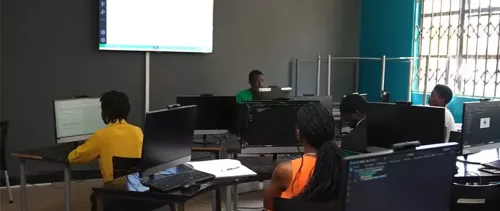
Spread across the vast Pacific Ocean, the islands of the South Pacific are significantly more connected than they were a decade ago. Some of these islands are still hard to access, some requiring a day or two of travel. Today, because of the digital revolution these islands are accessible by just a few clicks on your computer or smartphone. Digital revolution has brought great changes, some positive and some negative. But what does the future look like for the Pacific Islands in the next decade?
The information and communications technology (ICT) revolution in the Pacific Islands is delivering improved connectivity at an unprecedented rate – changing the ways Pacific Islanders communicate, do business, learn and socialize.
https://youtu.be/cq83fuccHAg
Future Pasifika, a partnership between the University of the South Pacific (USP), the World Bank and its sister organization, the International Finance Corporation (IFC), is a platform for thought leaders to share ideas on how the Pacific can collaborate to tackle the big issues facing this unique and vulnerable region.
In October 2019, the second Future Pasifika event was held at the USP in Suva, where a panel of information communications technology (ICT) experts discussed various issues on digital connectivity.
“There’s no doubt that the Pacific has moved forward in leaps and bounds on the ICT front since the 1990s – one just has to look at the growth in Facebook memberships in the region or consider that many are tuning into this discussion via a livestream,” said World Bank Resident Representative for the South Pacific, Lasse Melgaard.
“The World Bank Group is really proud to have been there from early on, and to be working with so many governments and businesses across the region to deliver connectivity that is affordable and reliable, including in some of the most remote parts of the Pacific.”
“From mobile money, to sending remittances and bringing in electronic payment systems, we’ve seen the use of digital technology help people in the Pacific overcome the disadvantages of distance,” said IFC’s Resident Representative for Fiji, Kiribati, Samoa, Tonga and Tuvalu, Deva De Silva. “Continuing to harness the power of technology and innovation can deliver more opportunity for more people.”
Cables as a lifeline
Naibuka Saune from Fijian telco leader Amalgamated Telecom Holdings (ATH) said the role of international financial institutions such as the World Bank, IFC and the Asian Development Bank (ADB) had played an important role in the connectivity of the region. These institutions, he said, helped the private sector when it encountered challenges.
The World Bank’s Digital Development Specialist, Shivnesh Prasad, said one of the key challenges in the Pacific was that populations were scattered.
“Cables in this context are a lifeline, as an investment into satellite technology is expensive,” Prasad said. “The cable systems in the Pacific have now reduced the cost of doing business and have encouraged competition, and ultimately the uptake of technology.”
"There’s no doubt that the Pacific has moved forward in leaps and bounds on the ICT front since the 1990s – one just has to look at the growth in Facebook memberships in the region or consider that many are tuning into this discussion via a livestream."
Lasse Melgaard
World Bank Resident Representative for the South Pacific


